
"My tongue sticks to my dry mouth/thin fire spreads beneath my skin/...I shake, I turn greener than grass..."
Prince, Erotic City.
Jimmie Rodgers, Let Me Be Your Sidetrack.
Memphis Minnie, Hot Stuff.
Donna Summer, Hot Stuff.
The Unholy Modal Rounders, Griselda.
The Who, Pictures of Lily.
The Flying Burrito Brothers, The Dark End of the Street.
So, we've come to it. Lust, in the hierarchy of the deadly sins, is fairly minor league--none of the church fathers would have ranked it above pride or anger, even sloth. But lust's overwhelming presence today, our culture's obsession with it (thinking about it or trying to wipe it out, usually both at once), have turned lust into the most colorful and dramatic of sins, the peacock of the seven.
Nowhere has lust been more celebrated and chronicled than in popular music, from Eddie Cantor to Mae West, Bessie Smith to Barry White. If music has been steeped in sin, it's been truly saturated in lust. The above list of songs is fairly arbitrary (a random spin of a radio dial likely will call up equally qualified candidates)--it's meant to be a sampler, just to show that lust-fever has gripped music since the days of Edison, which we sometimes conveniently forget as songs age and get commoditized into nostalgia. (I swear I heard a Muzak version of Sheena Easton's "Sugar Walls" recently). I was at a wedding at which a loud, older family member told the DJ that he wanted to only hear oldies, not vulgar hip-hop crap. He wanted clean oldies, with lyrics like:
Lucille!
You won't do your sister's will!
or
I'm like a one-eyed cat
Peepin' in a seafood store
Or if that's too much, you could play nothing but 1920s songs, chaste numbers like Cantor's "If You Knew Susie" ("OH! OH! OHH! What a GIRL!") or "No Wonder She's A Blushing Bride" or Cole Porter's "The Physician" ("Once I loved such a shattering physician/Quite the best-looking doctor in the state/He looked after my physical condition/And his bedside manner was great").
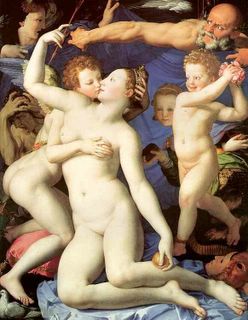
So as a call to, er, arms, here is Prince's "Erotic City". Much of Prince's catalog to date would qualify under this sin, so choosing only one song is a ridiculously futile task; still, "Erotic City" is a summation of Prince's genius, with lust as a rallying cry, if not for transcendence then simply for fun. (Probably the most legendary of Prince B-sides,(of 1984's "Let's Go Crazy", making that single one of the finest A/B combinations in pop history), "Erotic City" was finally collected in Greatest Hits/B-Sides.)
The 100,000-year war
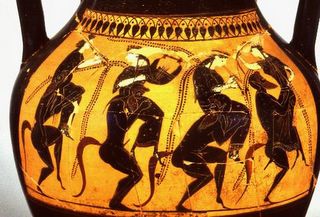
Lust, which Simon Blackburn nicely sums up as "the enthusiastic desire, the desire that infuses the body, for sexual activity and its pleasures for their own sake," has always been a problem. Cavemen elders likely spent time around the fire trying to think of ways to prevent the young from sneaking off into the forest. The Greeks were wary of it--Plato depicts lust as one of two stallions driving a chariot, "black in color, an ally of excess and affectation, hairy around the ears, hard of hearing." When the lust stallion spies a beautiful boy, it snorts and tries to drive the charioteer on to his ruin. (Not all Greeks had problems with lust--the Cynic philosopher Crates and his wife Hipparchia routinely screwed in public.)
After all, lust is dangerous, destabilizing, selfish and an enemy to tranquility and order. Its greatest enemies came with the rise of Christianity and Islam--"sky" religions set up as bulwarks against savagery, tribalism and Roman decadence, meant to supplant the older "earth" religions, with their fertility cults and drunken gods copulating with mortal women. So to the sky religions, the sexual impulse run amok--lust--seems like a grotesque throwback, a recrudescense of nature, shaming, sinful, weakening, gooey and messy.

Lust hate often devolves into general distaste for women, who typically get blamed as being the cause of the problem. As Col. Jack D. Ripper in Dr. Strangelove says, "I first became aware of it...during the physical act of love...a profound sense of fatigue... a feeling of emptiness followed. Luckily I was able to interpret these feelings correctly. Loss of essence. I can assure you it has not recurred. Women sense my power and they seek the life essence. I do not avoid women. But I do deny them my essence."
St. Augustine came of age during the pure days of early Christianity, where the ideal was a celibate, ascetic life out in the desert somewhere, and propagation was of no importance since the End Times were coming any day, and so he saw lust as the prime sign of man's general disobedience that led to the Fall--the inkstamp that marks us as being discarded goods. Augustine set up a pyramid of sexual practices--abstinence is best, then sexless marriage, then marriage with pleasureless sexual activity done to create children. On the bottom, of course, is acting for the sake of pure pleasure.
Players
Naturally, the bottom of the pyramid always gets the best songs--today's lust odes are the grubby inheritors of the great lustful poets, from Catullus in Caesar's Rome to John Wilmot, the Earl of Rochester (author of "The Dying Lover to His Prick," his life soon to be distorted in an upcoming film starring Johnny Depp.)
But libertine men have always gotten off a little easier (in all ways), from Don Juan to Casanova to James Boswell, catting around Hanoverian London (from Boswell's journal entry of 12 Jan 1763, "Five times I was fairly lost in supreme rapture. Louisa was madly fond of me; she declared I was a prodigy and asked me if this was not extraordinary for human nature...I was somewhat proud of my performance. She said it was what there was no just reason to be proud of...She said it was what we had in common with the beasts. I said no. For we had it highly improved by the pleasures of sentiment.")
Jimmie Rodgers' "Let Me Be Your Sidetrack," from 1931, is the libertine's come-on, Southern style. Jimmie's not offering much, just to be the woman in question's sidetrack until her main line comes. On Recordings.
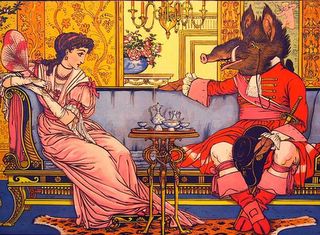
The lustful woman is usually seen as the real problem, from Lilith and Eve on down. (In particular, seemingly every woman in power, from Elizabeth I to Catherine the Great to Hillary Clinton, has featured in a host of slanderous stories in which her sexual appetites are exaggerated into cartoon monstrosities).
But sometimes in song the lustful woman gets heard. Take Memphis Minnie's "Hot Stuff", from 1937. Minnie in this song is a sort of pure lust incarnation, whose mere presence drives every man around her to insanity--men are trying to kill her, cops run after her with their guns drawn, howling at her, even other women are wolf-whistling. Minnie's given up trying to live any kind of conventional life. "I'm tired of catching hell everywhere I go," she says, and the band swings in sympathy. On Hot Stuff.
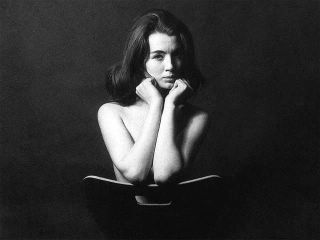
Forty years later, you have Minnie's descendent, now ensconced in a high-rise apartment, but still feverish; she's dialing every number she can think of, planning to go down to the closest singles bar and just grabbing the first man she can find. ("Hot Stuff", from 1979, is one of the pinnacles of the disco era, with production so dense you can sink into it and an ecstatic vocal by Donna Summer. (Buy On the Radio.) Years later, in a typical bit of American marketing genius/perversity, it was turned into an advertisement for Chef Boyardee, with child actors singing "Lookin' for some hot stuff--Beef-a-Roni!!")
Teenage kicks

The young are always in danger of falling into lust, and often need the whip of Plato's charioteer (which sounds a bit kinky). Being young in this country is inherently frustrating. Imagine owning a sports car in great condition--an MG or Porsche. (Or even a new Toyota that gets good mileage.) And then imagine that owners of older, worn-out cars begin decreeing what you can do with your car. Keep it parked in your garage. If you have to drive it somewhere, go only 20 mph. Don't go on the highway. Don't have any passengers. At the same time, however, everywhere you look, and in every song you hear, you encounter exciting descriptions of driving your car fast and recklessly.
Songs about teenage lust are countless--here's a lesser-known one, "Griselda", in which our teenage couple are creeping off into the woods, besotted with each other or maybe just with the general pleasure of it. Sung by Pete Stampfel on 1976's Have Moicy!, one of my favorite records--it's a hootenanny featuring Stampfel, the late Jeffrey Frederick and the amazing Michael Hurley.
 Lust comes in a host of varieties, the solitary kind not exempted, so the poor teenage car owner even gets damned for polishing his vehicle in the privacy of his home. The Who's "Pictures of Lily," from 1967, remains the greatest teenage (male) masturbation song ever recorded, with a hilarious lyric capped off by orgasmic French horn bursts in the bridge. On Meaty Beaty Big and Bouncy.
Lust comes in a host of varieties, the solitary kind not exempted, so the poor teenage car owner even gets damned for polishing his vehicle in the privacy of his home. The Who's "Pictures of Lily," from 1967, remains the greatest teenage (male) masturbation song ever recorded, with a hilarious lyric capped off by orgasmic French horn bursts in the bridge. On Meaty Beaty Big and Bouncy.Lust World

So is unfettered lust always a good thing? I can't argue that, though I'm not one to throw in my allegiance with the bluenoses, hermits and scolds. Still, it's arguable that lust thrives best in opposition, as a sort of shadow government to a stable society--lust without bounds can lead to nirvana, true, but more often to disease, unwanted children and marital chaos.
Lust is corrosive--a great, foolish destroyer of ambitions and plans, often used as a wedge to topple the mighty. The presidency of Bill Clinton--what could it have accomplished if the sex scandal and subsequent, ridiculous impeachment hadn't occurred? What else would Oscar Wilde have written? What could Charles Stewart Parnell have done for Ireland? Could Gary Hart have defeated George Bush in 1988? And so on.
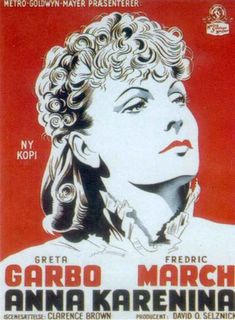
So let's take our leave at the dimming of the day, when the adulterers and the lustful begin gathering at the dark end of the street. Gram Parsons' vocal is more tragic than lustful--he knows he's going to be found out one day, that his life, his marriage will be ruined. But each night he keeps going back. (On 1969's Gilded Palace of Sin.)
No comments:
Post a Comment